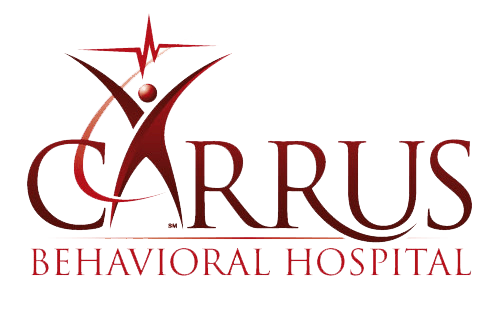
If your anger is getting the best of you or your loved ones, consider anger management as a treatment. The way we respond to situations around us can mean the difference between facing long-term or lifelong consequences or not.
Anger management is a process that can help individuals understand and control their anger in healthier and more constructive ways. From it, patients learn techniques to manage and express their anger safely and effectively. Individuals can also learn strategies to prevent anger from escalating into harmful or aggressive behavior that can endanger others and themselves.
A trained mental health professional can help with this problem, address a patient’s unique needs as an individual, and give back the person control of their anger.
Below, we discuss signs that someone needs anger management, what exactly anger management entails, and how it can help you or your loved ones.
When is Anger a Problem?
Anger is a normal and natural emotion that everyone experiences from time to time. However, when anger becomes frequent, intense, or uncontrollable, it can have detrimental effects on a person’s relationships, work, and overall health and well-being. With uncontrollable anger, you could get into situations that jeopardize your safety, reputation, and future.
The aim of anger management is to address underlying issues and provide individuals with the tools and skills to better cope with anger.
What are the Signs of Anger Issues?
If you are wondering whether or not it’s an anger issue, below are some signs that it is serious:
- Frequent Outbursts: Frequently losing control of temper, experiencing intense anger outbursts, or having a short fuse. In children, frequent crying, screaming, and tantrums are common signs.
- Physical Aggression: You have engaged in physical aggression, such as hitting walls, throwing objects, or have gotten into physical altercations over parking spaces or waiting your turn at places, or something similar. In children, this can present as kicking, biting, or destroying physical property.
- Verbal Abuse: You have hurled verbal abuse, insults, or aggressive language toward others while angry. If you have engaged in yelling, screaming, or have made hurtful and disrespectful comments to others, it may be an indication of an anger issue. Children with anger issues are often guilty of bullying and threats.
- Relationship Problems: Anger can strain relationships with family, friends, and colleagues. You may find that your inability to control your anger impacts your relationships, resulting in the breakdown of communication, severing of ties, and estrangement. Children with anger issues may have no friends, which results in withdrawal or isolation.
All these show how damaging uncontrolled anger can be, and unfortunately, this is only a short list of what one could face without help in managing their anger.
What are the Benefits of Anger Management?
The benefits of anger management can be significant and life-changing, especially in children who are still growing and developing. By learning how to manage anger, individuals can reduce the negative consequences that often accompany uncontrolled anger outbursts.
Some of the casualties of uncontrolled anger include damaged relationships, poor physical health (cardiovascular disease, insomnia), poor mental health (depression, loneliness), and legal issues. Even if you can identify just one casualty in your life, it could easily lead to a domino effect, leading to more casualties along the way.
Anger management can lead to better stress management, coping skills, better performance in school or at work, improved communication skills, increased empathy, and enhanced problem-solving abilities.
What is Anger Management Treatment Like?
Anger management treatments are usually individualized to the patient. However, there are some shared strategies:
- Identifying triggers – Treatment includes helping patients identify triggers or situations that frequently lead to anger and developing coping mechanisms to manage them. The mental health professional may teach you relaxation techniques, such as deep breathing or progressive muscle relaxation, which can help calm the body and mind during moments of anger.
- Changing thought patterns and improving communication skills – Another aspect of anger management is learning assertiveness skills, where you can learn to express needs and feelings in a clear and respectful manner. By communicating assertively, individuals with anger issues can avoid bottling up their anger and prevent it from building up over time. Furthermore, cognitive behavioral therapy may also be used to challenge and change negative thought patterns that contribute to severe anger.
- Address underlying mental health issues – A mental health professional can help you manage your anger through therapy or counseling. They can provide a safe space for you to explore the underlying causes of anger and develop personalized strategies to manage your anger. The mental health specialist can also address any co-occurring mental health conditions, such as depression or anxiety, that may contribute to anger-related issues.
It is important to note that anger management is not about suppressing or eliminating anger altogether. Instead, it focuses on developing healthier ways to express and manage anger. It is normal to experience anger, but the goal is to prevent it from causing harm to oneself or others.
Manage Anger Now
If you feel that anger is negatively impacting your child’s life, seeking help from a qualified mental health professional is a great step toward betterment. A mental health professional can guide your child through the process of anger management and provide support as they learn new skills to help manage their anger effectively.
With practice and commitment, anger management can help your child lead a healthier, more fulfilling, and harmonious life, and reach their full potential.
Anger Management Treatment in Sherman, TX
Carrus Behavioral Hospital offers specialized anger management treatment tailored to your child’s needs, based on contemporary, evidence-based therapeutic practices. We have a multi-disciplinary team, led by a board-certified psychiatrist, and we are highly committed to our patients’ recovery and return to a happy and healthy life.
Better anger management is ultimately better for health and well-being. Contact us to schedule a consultation. Call us today at (903) 870-2600. Our friendly staff looks forward to your call!

